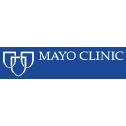What do they do?
Conduct electroneurodiagnostic (END) tests such as electroencephalograms, evoked potentials, polysomnograms, or electronystagmograms. May perform nerve conduction studies.
Also known as:
Certified Intraoperative Neurophysiology Technologist (Certified Intraoperative Neurophysiology Tech), Certified Neurodiagnostic Technologist, Electroencephalogram Technologist (EEG Technologist), Electroneurodiagnostic Technologist (END Technologist), Intraoperative Neuromonitoring Technologist (IONM Tech), Neurodiagnostic Technologist (Neurodiagnostic Tech), Neurophysiology Technical Specialist, Registered Electroencephalogram Technologist (Registered EEG Tech), Registered Electroencephalography Technologist (R. EEG. T), Registered Electroneurodiagnostic Technologist (Registered END Tech), Registered Polysomnographic Technologist (RPSGT)
-
1.7%
Change
Ranks #45 in job growth rate610Job Openings
Ranks #5 in net job growth
Looking for colleges that offer a specific major? Use the College Match Tool to find your best-matched schools and discover your estimated Net Price!
- Some college, no degree (33%)
- Bachelor's degree (22%)
- High school diploma equivalent (18%)
- Associate's degree (16%)
- Master's degree (6%)
- Less than high school diploma (3%)
- Doctorate or Professional Degree (2%)
People in this career often have these skills:
- Active Listening - Giving full attention to what other people are saying, taking time to understand the points being made, asking questions as appropriate, and not interrupting at inappropriate times.
- Speaking - Talking to others to convey information effectively.
- Reading Comprehension - Understanding written sentences and paragraphs in work-related documents.
- Critical Thinking - Using logic and reasoning to identify the strengths and weaknesses of alternative solutions, conclusions, or approaches to problems.
- Monitoring - Monitoring/Assessing performance of yourself, other individuals, or organizations to make improvements or take corrective action.
- Writing - Communicating effectively in writing as appropriate for the needs of the audience.
People in this career often know a lot about:
- English Language - Knowledge of the structure and content of the English language including the meaning and spelling of words, rules of composition, and grammar.
- Customer and Personal Service - Knowledge of principles and processes for providing customer and personal services. This includes customer needs assessment, meeting quality standards for services, and evaluation of customer satisfaction.
- Computers and Electronics - Knowledge of circuit boards, processors, chips, electronic equipment, and computer hardware and software, including applications and programming.
- Medicine and Dentistry - Knowledge of the information and techniques needed to diagnose and treat human injuries, diseases, and deformities. This includes symptoms, treatment alternatives, drug properties and interactions, and preventive health-care measures.
- Biology - Knowledge of plant and animal organisms, their tissues, cells, functions, interdependencies, and interactions with each other and the environment.
- Psychology - Knowledge of human behavior and performance; individual differences in ability, personality, and interests; learning and motivation; psychological research methods; and the assessment and treatment of behavioral and affective disorders.
People in this career often have talent in:
- Oral Expression - The ability to communicate information and ideas in speaking so others will understand.
- Problem Sensitivity - The ability to tell when something is wrong or is likely to go wrong. It does not involve solving the problem, only recognizing that there is a problem.
- Oral Comprehension - The ability to listen to and understand information and ideas presented through spoken words and sentences.
- Written Comprehension - The ability to read and understand information and ideas presented in writing.
- Deductive Reasoning - The ability to apply general rules to specific problems to produce answers that make sense.
- Inductive Reasoning - The ability to combine pieces of information to form general rules or conclusions (includes finding a relationship among seemingly unrelated events).
- Information Ordering - The ability to arrange things or actions in a certain order or pattern according to a specific rule or set of rules (e.g., patterns of numbers, letters, words, pictures, mathematical operations).
- Near Vision - The ability to see details at close range (within a few feet of the observer).
- Speech Clarity - The ability to speak clearly so others can understand you.
People in this career often do these activities:
- Monitor patient conditions during treatments, procedures, or activities.
- Test patient nervous system functioning.
- Collect medical information from patients, family members, or other medical professionals.
- Explain medical procedures or test results to patients or family members.
- Adjust settings or positions of medical equipment.
- Prepare medical supplies or equipment for use.
- Operate diagnostic or therapeutic medical instruments or equipment.
- Prepare reports summarizing patient diagnostic or care activities.
- Prepare patients physically for medical procedures.
- Measure the physical or physiological attributes of patients.
- Communicate test or assessment results to medical professionals.
- Maintain medical equipment or instruments.
- Repair medical facility equipment.
- Operate diagnostic imaging equipment.
- Train medical providers.
- Conduct research to increase knowledge about medical issues.
- Maintain medical or professional knowledge.
This page includes data from:

 Occupation statistics: USDOL U.S. Bureau of Labor Statistics Occupational Employment Statistics
Occupation statistics: USDOL U.S. Bureau of Labor Statistics Occupational Employment Statistics







